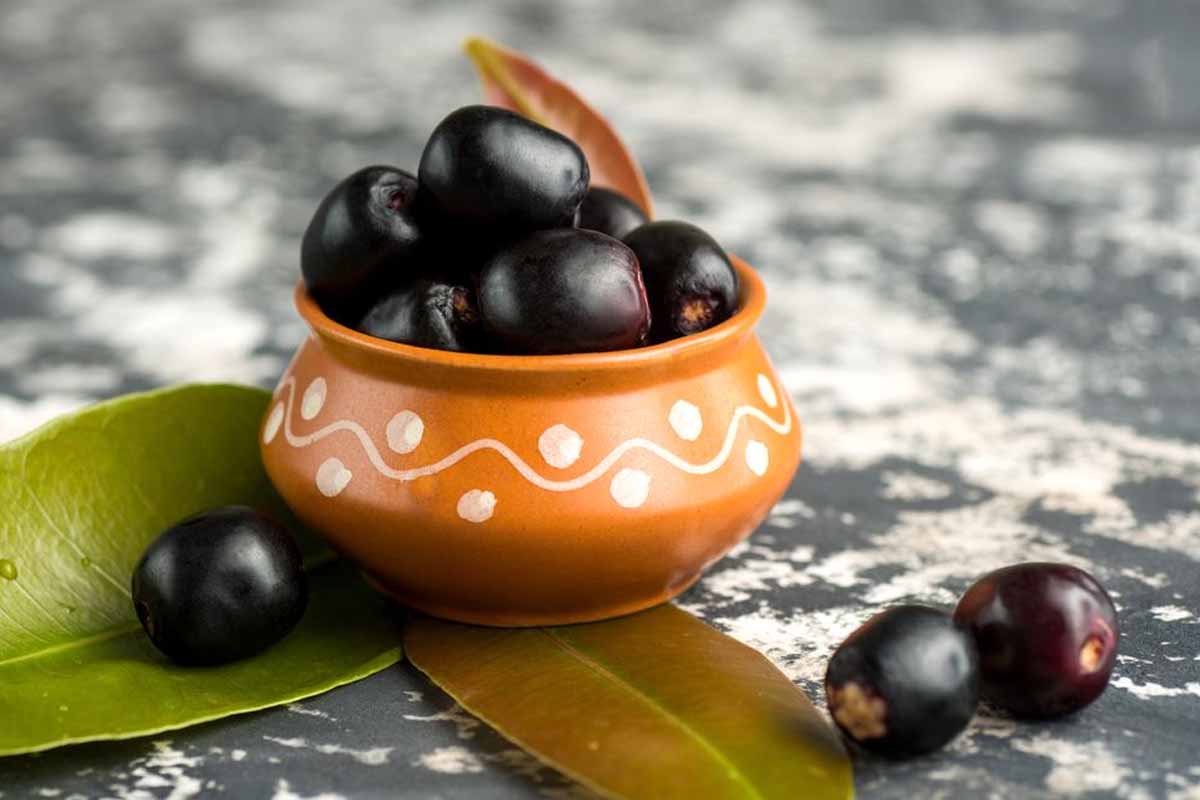Life changing habits to adopt for 2024
Now is a great time to take stock of our lives and consider how we may make positive adjustments as the New Year draws near. Our general well-being can be greatly impacted by forming new habits.
Jamun is loaded with nutrition that makes it a great snack to have in summer. The dark color of the skin is because of anthocyanin, which is a potent phytonutrient.

Benefits of Jamun (photo-stock)
Jamun or Black Plum evokes nostalgic memories of many childhood summers in most of us. We love that tangy explosion of flavor and our tongues going purple!
Native to India, Jamun is a pretty fruit with rich color and sweet taste. The fruit is popular for its deep blue or purple color. Also known as black plum or Java plum, Jamun has now spread to other tropical regions across the world. It is a fruit of the flowering tree called Syzygium cumini and it fruits during May and June. Jamun has several medicinal and health benefits. It is one of the best home remedies for stomach pain, diabetes, and arthritis. The fruit also cures digestive issues like dysentery and flatulence.
Jamun is loaded with nutrition that makes it a great snack to have in summer. The dark color of the skin is because of anthocyanin, which is a potent phytonutrient. This provides the body with an ample amount of antioxidants, that protect the cells in the body from harm caused by oxidative stress and free radicals.
Advertisement
Jamun is rich in naturally occurring sugar called fructose and contains very few calories. 100 grams of Jamun gives you just 62 calories and 18 mg vitamin C, 15 mg calcium, 15 mg phosphorus, 26.5 mg sodium, 55 mg potassium, 5 mg magnesium, and small amounts of thiamine, riboflavin, carotene, folic acid, fiber, and negligible fat. Jamun is loaded with glucose and water content, making it a suitable fruit to have during the hot summer months.
Here are some of the health benefits of Jamun:
1. Improves hemoglobin count
Being an excellent source of vitamin C and iron, this fruit increases hemoglobin count. While iron works as a blood purifier, the increased hemoglobin count allows your blood to carry more oxygen to the organs and keep your body healthy.
2. Keeps skin healthy
Jamun is rich in astringent properties which protect the skin from blemishes, pimples, wrinkles, and acne. Moreover, the vitamin C content helps purify the blood, leaving your skin radiant and glowing.
3. Manage diabetes
Those who are suffering from diabetes can safely consume Jamun as it is low in calories. Additionally, the polyphenolic ingredients present in Jamun play a significant role in the treatment of diabetes.
4. Boosts heart health
Jamun is a good source of antioxidants and minerals like potassium, which are beneficial to keep heart diseases at bay.
5. Helps with weight loss
Jamun is a low-calorie fruit that is rich in fiber, making it a perfect weight loss combination. Jamun also improves digestion and helps in reducing water retention in the body.
6. Improves gastric health
Jamun can help treat digestive disorders. The diuretic properties keep the body and digestive system cool and provide relief from constipation.
7. Prevents infection
Jamun has antibacterial, anti-infective, and anti-malarial properties. The fruit also contains malic acid, tannins, gallic acid, oxalic acid, and betulin acid. The fruit is effective in preventing common infections.
8. Strengthens your gums and teeth
Jamun is beneficial for your gums and teeth. The leaves of the black plum have antibacterial properties and can be used to prevent bleeding of gums. You can dry the leaf and then powder it to be used as a tooth powder. This will help in preventing gum bleeding and infection. The bark of the tree has astringent properties and you can use a decoction prepared with the bark to rinse your mouth to treat mouth ulcers.
9. Helps Regulate Blood Pressure
Jamun seeds may prove to be a boon for people dealing with hypertension as the seed extract of the fruit contains a type of antioxidant called ellagic acid that may help in keeping a check on rapid fluctuations of blood pressure.
10. May Boost Immunity
Jamun seeds contain powerful antioxidants like flavonoids and also phenolic compounds that help keep harmful free radicals at bay.
Advertisement